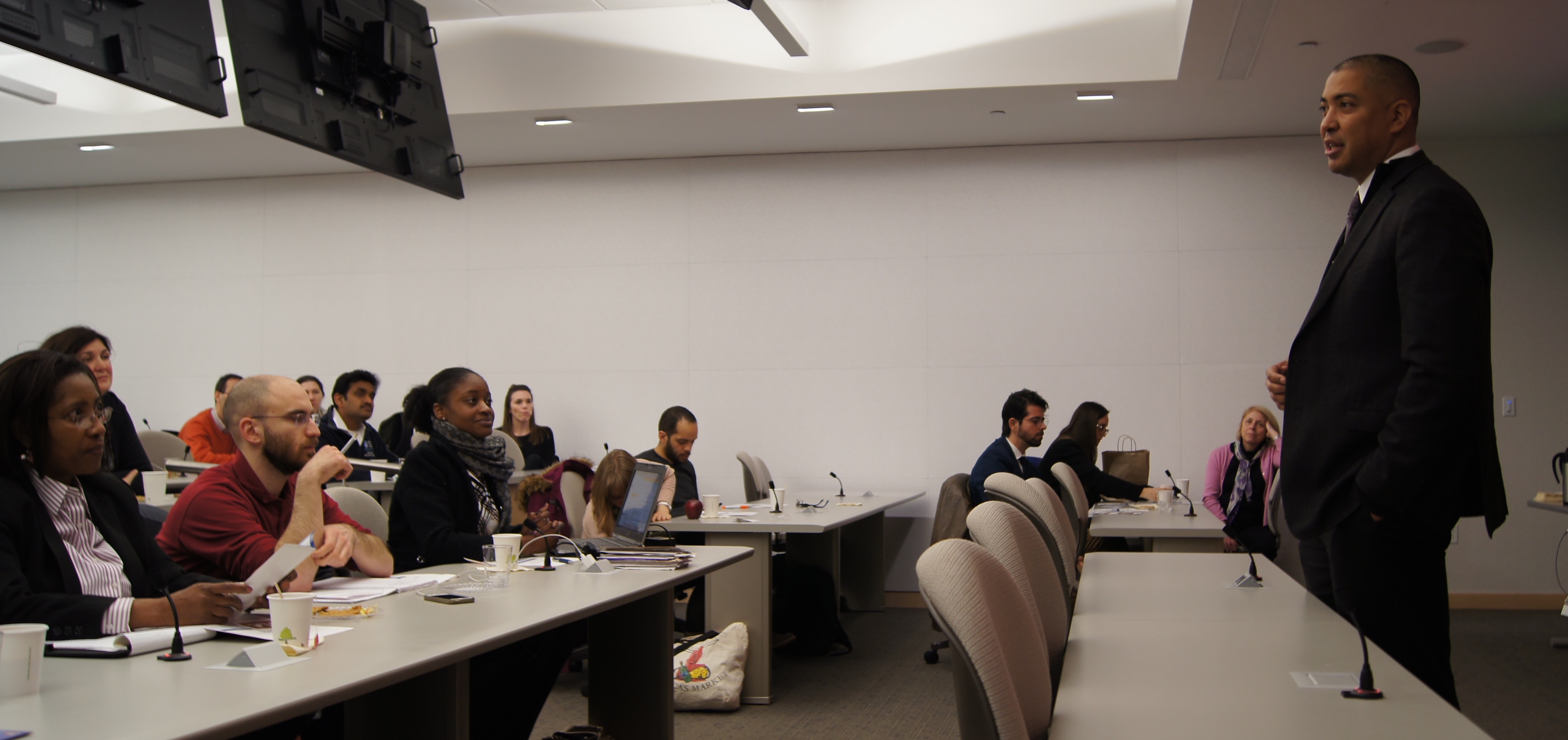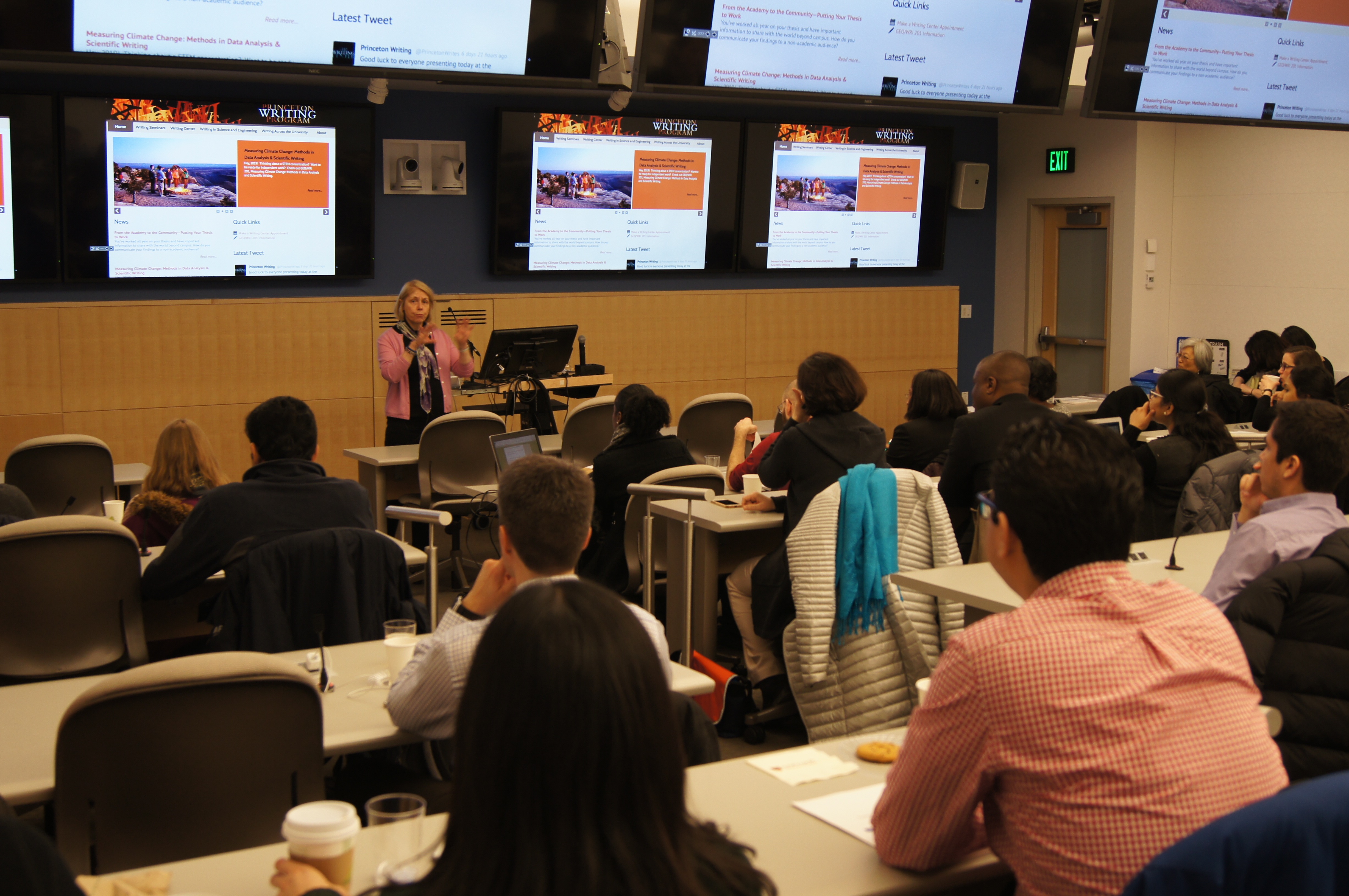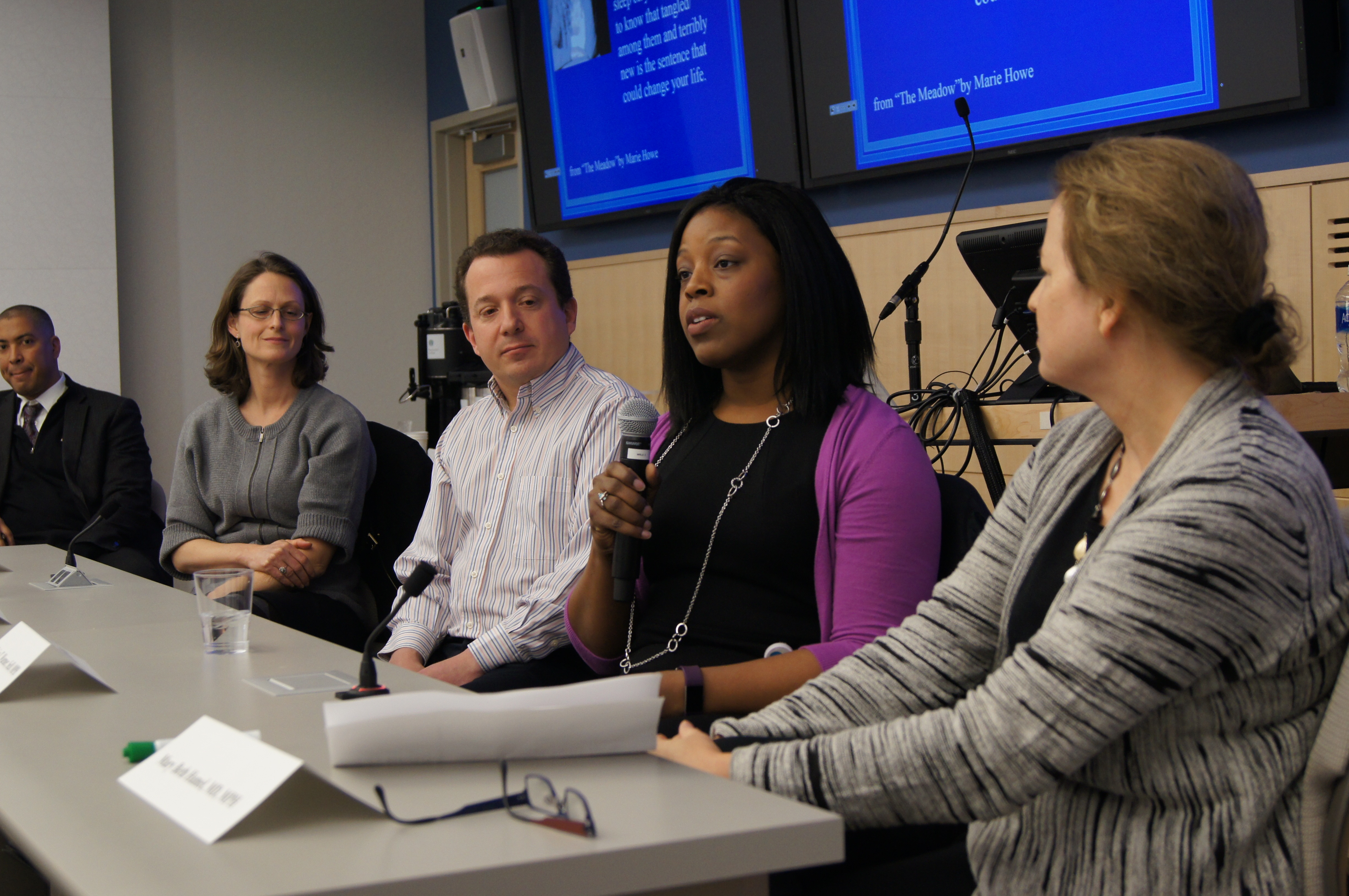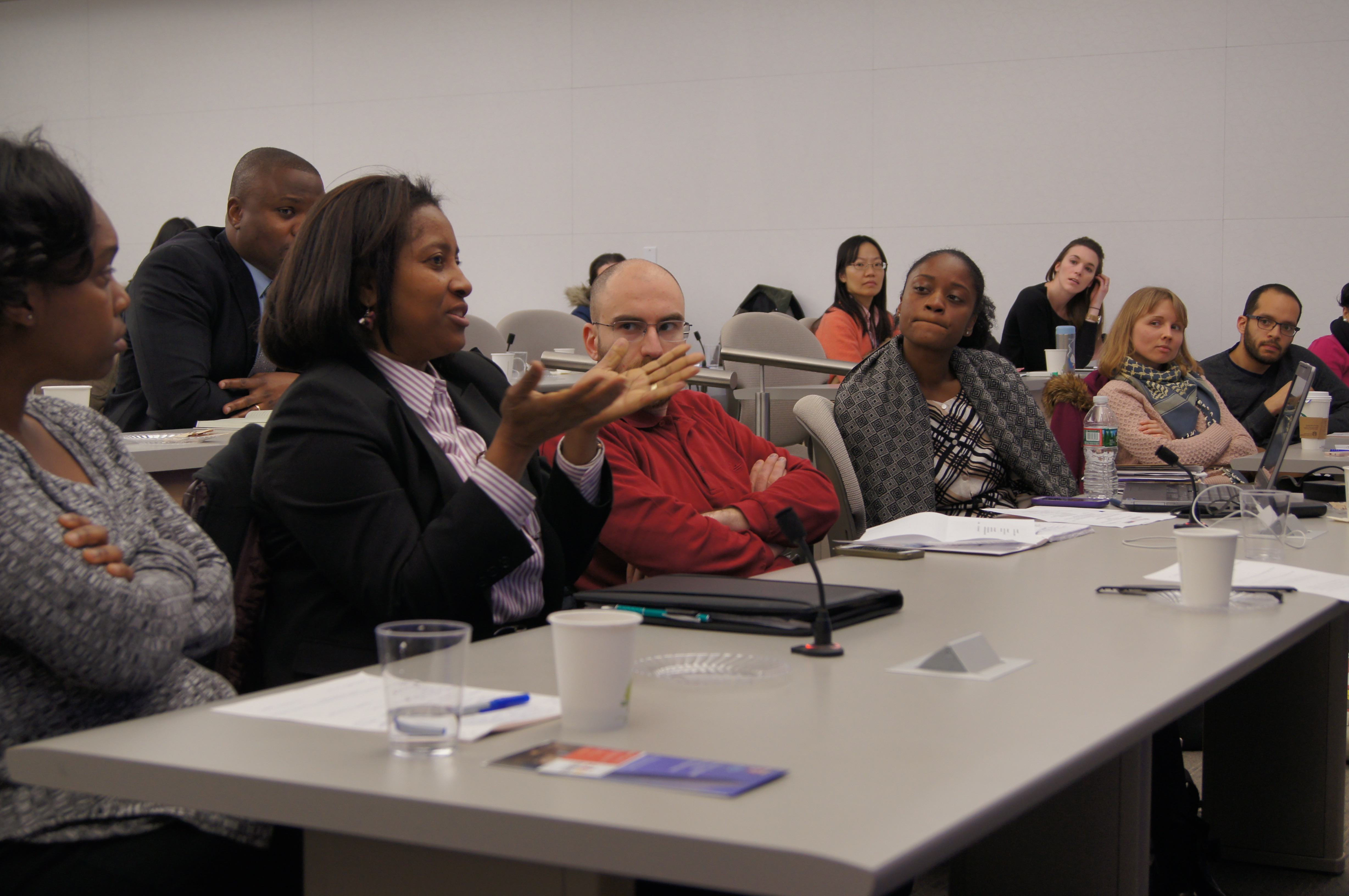Written by Gaoyuan Liu
On Friday, March 24, National Research Mentoring Network (NRMN) held a half day career development workshop in collaboration with Harvard Medical School’s Office for Diversity Inclusion & Community Partnership (DICP). NRMN and DICP designed the workshop with a goal of supporting postdoctoral fellows in their professional development, in alignment with NRMN’s mission to foster persistence and success among scientists from all backgrounds pursuing biomedical research.
The event, located at the Tosteson Medical Education Center in the heart of Boston’s Longwood medical area, took place between 1:30 through 6:30 with more than fifty postdoctoral fellows in attendance.
The session began with a welcome and introduction by Dr. Rafael E. Luna, Executive Director for the National Research Mentoring Network and Principal Investigator for NRMN’s Administrative Core at Boston College.

The session then proceeded with a presentation regarding effective scientific writing, followed by a panel Q&A session regarding scientific writing and the world of publishing. The event concluded with a dinner and discussion with panelists.
Participants arrived at Harvard Medical School by shuttle after attending an informational meeting with Novartis Institutes for Biomedical Research (NIBR).
 The Interactive Workshop on Publishing was led by keynote speaker Judy Swan, Ph.D, an Associate Director for Writing in Science and Engineering at Princeton University, where she developed and oversees a writing program for graduate students. Over the past 20 years, Dr. Swan has taught writing to scientists at all levels of academia, industry, and government with her workshops having been offered at major institutions around the nation such as Columbia University, Merck Pharmaceuticals, the Centers for Disease Control and Prevention, and the National Institutes of Health.
The Interactive Workshop on Publishing was led by keynote speaker Judy Swan, Ph.D, an Associate Director for Writing in Science and Engineering at Princeton University, where she developed and oversees a writing program for graduate students. Over the past 20 years, Dr. Swan has taught writing to scientists at all levels of academia, industry, and government with her workshops having been offered at major institutions around the nation such as Columbia University, Merck Pharmaceuticals, the Centers for Disease Control and Prevention, and the National Institutes of Health.
Her talk, “Learning to Survive (Writing) as a Scientist,” was accompanied by a tailor-made packet with passages that illustrated before-and-after examples edited for clarity and flow. Her major takeaway, as distilled in the first sentence of the packet, is that “Readers have specific expectations about where in the structure of prose they will find particular kinds of information.” Swan launched into a lecture about the importance of clear communication, addressing and unraveling common poor habits of writing.
“What structures do you use?”
With a mix of humor, wit, and concise moments of wisdom, Swan ran through the basics of strong scientific writing, with a vocal delivery that reflected what she preached on paper.
“Writers don’t matter, readers do. As soon as the literature leaves the writer’s hands, it belongs to the reader—and if the reader understands it differently from the writer, the reader’s interpretation is the only one that matters,” said Swan. “The writer’s job is to shape the readers’ interpretation to the writer’s intended message.”
The presentation was well-received by the participants, who hailed from diverse backgrounds.
“Writing is a big part of what do in science,” said Alfred Tamayo, postdoctoral fellow at Harvard Medical School. “[Dr. Swan] discussed a lot of common mistakes I see in my own writing, and it’s part of the process of catching myself. I appreciated the way she presented.”
“[Dr. Sawn] basically told me what I had a hunch about—that I have to improve my writing. I’ve been putting it off and being comfortable. It takes dedication.” Said Cianna Leatherwood, a Rhematology fellow at Brigham and Women’s Hospital.
After a ten-minute break, the workshop resumed with NRMN Executive Director Dr. Rafael E. Luna introducing the four panelists. NRMN was joined by Dr. Dan Wainstock, Associate Director for Research Integrity at Harvard Medical School, who holds 15 years of editorial and publishing experience at Cell Press; Dr. Mary Beth Hamel, a faculty member who practices primary care at Beth Israel Deaconess Medical center, as well as an Executive Deputy Editor of the New England Journal of Medicine and Associate Professor of Medicine at Harvard Medical School; Dr. Anne Granger, a Senior Editor at Cell Metabolism; and Dr. Erica Warner, an Assistant Professor in the Department of Medicine at Harvard Medical School as well as an Assistant Investigator at Massachusetts General Hospital.
The panelists took turns answering questions from Dr. Luna as well as members of the audience who were interested in the publishing world.
“How can I stand out with my submissions?” asked one participant.
 Dr. Warner stressed the importance of calculated peer-editing as well as a persuasive cover letter. The panelists discussed for a while the improvements that can be had with peer-editing and advised the crowd to choose wisely who they seek for constructive reviews. As the member with the closest recent experience in submissions, Warner urged the audience to continue pursuing research even in the face of failure.
Dr. Warner stressed the importance of calculated peer-editing as well as a persuasive cover letter. The panelists discussed for a while the improvements that can be had with peer-editing and advised the crowd to choose wisely who they seek for constructive reviews. As the member with the closest recent experience in submissions, Warner urged the audience to continue pursuing research even in the face of failure.
The panel stressed the importance of calculated peer-editing as well as a persuasive cover letter. The panelists discussed for a while the improvements that can be had with peer-editing and advised the crowd to choose wisely who they seek for constructive reviews.
Dr. Wainstock encouraged the audience to not give up despite the oftentimes demanding process of submissions: “Think about science—what you love about science and what makes you good at it.”
“Publishing”, Dr. Warner reminded the crowd, “is the currency of the realm.”
Shown below: Attendee poses question to the expert panel.

Editor: Drew Simenson